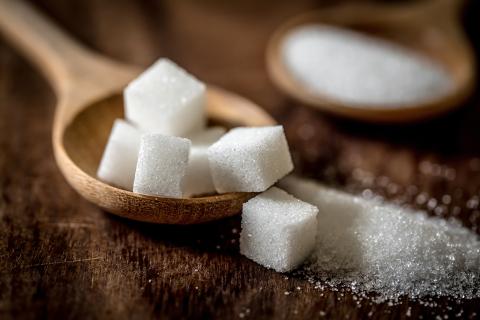
Many of us know there is a strong link between sugar consumption and cancers, with colorectal cancer being high on the list. Sugar-sweetened beverages such as fruit juices, sports drinks and sodas are the leading source of added sugar in our diets and one standard, 20-ounce bottle of soda can have more than 16 teaspoons of sugar.
A recent 2021 study looked at the relationship between sugar-sweetened beverage consumption and early onset colorectal cancer. This large study included over 90,000 women and found those who consumed 2 or more servings (1 serving = 12 ounces) per day had more than double the risk of early onset colorectal cancer compared to those who consumed less than 1 serving per week. In addition, a 16% higher risk was noted with each increase in serving per day.
This study serves as a reminder that minimizing our consumption of simple sugars can have a significant impact in reducing cancer risk. Aside from sweetened beverages, other major sources of added sugar are desserts and snacks such as candy, cake and cookies, and sweetened coffee or tea.
What can we do with this information?
- Prioritize water as your main beverage. Drinking at least 1.5-2 liters of water per day is important for staying hydrated and can also reduce the amount you eat. If you don’t enjoy the taste of water, you can try adding fruits or vegetables for flavour, like cucumbers, lemons, mint leaves, etc.
- Before purchasing beverages or foods, screen them for ingredients such as added sugar, fructose, and high fructose corn syrup. For example, some beverages marketed as “green tea” contain almost the same amount of sugar as soda.
- When you experience a sugar craving, try reaching for some fruit instead of a processed snack that’s high in sugar.
- If you like adding sugar to your coffee or tea, try cutting down the amount you add by half and wean down from there.
- When baking cookies or desserts, cut the sugar called for in the recipe by one-third to one-half. Or, instead of adding sugar to recipes, use extracts like almond, vanilla, orange, or lemon.
- Try enhancing foods with spices instead of sugar, such as ginger, cinnamon, or nutmeg.
- Educate your loved ones about this risk factor and encourage them to make these changes in their lives with you as well.
Author: Julie Robinson, CCNM Integrative Cancer Centre Intern